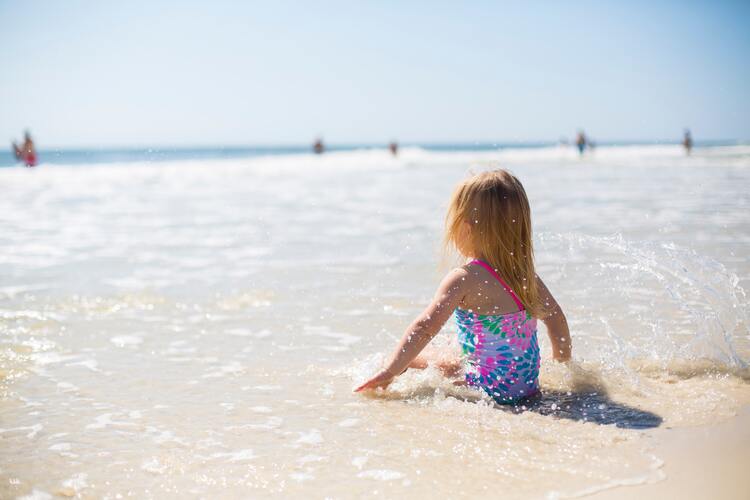- Like
- SHARE
- Digg
- Del
- Tumblr
- VKontakte
- Flattr
- Buffer
- Love This
- Save
- Odnoklassniki
- Meneame
- Blogger
- Amazon
- Yahoo Mail
- Gmail
- AOL
- Newsvine
- HackerNews
- Evernote
- MySpace
- Mail.ru
- Viadeo
- Line
- Comments
- Yummly
- SMS
- Viber
- Telegram
- JOIN
- Skype
- Facebook Messenger
- Kakao
- LiveJournal
- Yammer
- Edgar
- Fintel
- Mix
- Instapaper
- Copy Link
Introduction
Water safety is an important skill that everyone should know. Whether you’re a parent, a swim instructor, or a lifeguard, understanding the basics of water safety is essential for keeping yourself and your loved ones safe.
From learning how to float and tread water to understanding how to rescue someone from a pool or open water, knowing the basics of water safety can help save lives. In this blog, I’m going to share the essential tips and rules for water safety, so you can make sure you and your family are prepared for any situation.
Introduction to Water Safety
Water safety is the practice of learning how to safely enjoy the water, whether it’s at the beach, in a pool, or in open water. It includes knowing how to swim, recognizing potential hazards, and understanding basic water rescue techniques.
Most importantly, water safety teaches us how to prevent accidents from happening in the first place. This can include wearing life jackets, avoiding alcohol and drugs, and never swimming alone.
In addition to preventing accidents, water safety also teaches us how to recognize signs of danger and respond appropriately. This includes understanding the importance of obeying rules and staying within designated areas, as well as learning how to recognize signs of distress in the water.
Benefits of Water Safety
Learning water safety has many benefits. Most importantly, it can help save lives. Knowing how to respond to an emergency situation can make all the difference in a life-or-death scenario.
In addition to saving lives, water safety also teaches important life skills such as discipline, respect, and responsibility. It also helps build confidence and encourages kids to be more active and get outside.
By understanding the basics of water safety, we can all enjoy the water with peace of mind.
Essential Water Safety Tips
Water safety is an important subject that everyone should know. Here are some essential tips to help keep you and your family safe in the water:
- Always swim with a buddy. Never swim alone.
- Learn how to recognize signs of distress in the water, such as waving arms or calling for help.
- Know the water safety rules for each location you’re swimming in.
- Make sure everyone knows basic water rescue techniques, such as reaching and throwing.
- Don’t use drugs or alcohol while swimming.
- Make sure there’s a lifeguard on duty when swimming in a pool.
- Learn how to float and tread water.
- Know your limits and be aware of your surroundings.
By following these tips, you can help ensure that everyone stays safe in the water.
Water Safety Rules for Kids
Water safety is especially important for kids, who are more likely to take risks and less likely to recognize signs of danger. Here are some water safety rules to help keep kids safe:
- Swim only in designated areas.
- Don’t dive into shallow water.
- Avoid swimming in murky or fast-moving water.
- Don’t swim in open water without adult supervision.
- Don’t swim during thunderstorms or after dark.
- Learn basic water rescue techniques.
- Don’t play or swim near drains or suction outlets.
- Don’t try to show off or take risks.
By following these rules, kids can help ensure their safety in the water.
Infant Water Safety
Infants and young children have different safety needs than older kids and adults. Here are some tips to help keep water safety for toddlers:
- Never leave an infant or young child unattended in the water.
- Make sure an adult is within arm’s reach at all times.
- Don’t let infants or young children play in water that is over their heads.
- Don’t let infants or young children play near drains or suction outlets.
- Make sure they are wearing appropriate swimwear.
By following these tips, you can help ensure that infants and young children stay safe in the water.
Cold Water Safety
When swimming in cold water, it’s important to understand the risks and be prepared for any situation. Here are some tips to help keep you safe in cold water:
- Avoid swimming in cold water alone.
- Learn how to recognize signs of hypothermia and cold shock.
- Learn how to recognize signs of distress in the water.
- Wear appropriate clothing for cold water swimming.
- Don’t try to show off or take risks.
- Don’t stay in the water for too long.
By following these tips, you can help ensure that everyone stays safe in cold water.
Preparing for Emergency Situations
In addition to following the tips above, it’s also important to prepare for emergency situations. Here are some tips to help you prepare:
- Learn basic first aid and CPR.
- Make sure there’s a lifeguard on duty.
- Have a plan for what to do in an emergency situation.
- Have a list of emergency numbers handy.
- Make sure everyone knows how to reach out for help.
- Have a first aid kit and emergency supplies on hand.
By following these tips, you can help ensure that everyone is prepared for any emergency situation.
Conclusion
Water safety is an important skill that everyone should know. From understanding the basics of water safety to recognize signs of distress in the water, knowing the essential tips and rules for water safety is essential for keeping yourself and your loved ones safe.
So, take the time to learn the basics of water safety and follow the tips and rules above. And don’t forget to schedule a FREE trial lesson today with Swimright Academy to get started!


